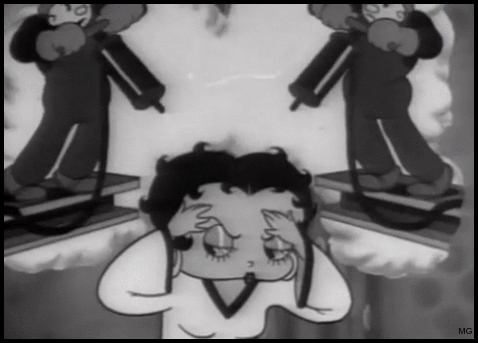An amazing woman once said, "Work without love is slavery." Yes, but what if the reason work feels like slavery is because you constantly get an ugly beating from tension headaches? Working while enduring a tension headache, or any headache for that matter, is ridiculously akin to being whipped like a slave. While we can thank the heavens for headache medicine, must we just accept the pain?
In this article, we discuss the causes of tension headaches, their symptoms, and how to treat them.

What is a tension headache?
Before anything else, let's first discuss what a tension headache is. In a nutshell, it's just a fancy term for normal headaches -- when you experience pressure closing in from your temples or from behind your eyes. Sometimes, you'll also feel like your neck muscles are tensing up.
Tension headaches can cause mild, moderate, or intense pain in your head, neck, and behind your eyes. For some people, the tension headache can feel like there's a tight band around their forehead.
Causes of tension headaches
Researchers haven't identified a single cause of tension headaches. We just know they are caused by muscle contractions in the neck and head regions. These types of contractions are caused by various factors such as food, activities, and stressors.
Many people develop tension headaches after driving for long periods or staring at a computer screen for hours at a time. Cold temperatures can also trigger tension headaches.
There are also patterns of activity that you do to trigger them. Causes of tension headache include:
-
Burning the midnight oil a.k.a. lack of sleep
According to a research team from Missouri State University, the deprivation of REM sleep causes the secretion of high levels of proteins that stimulate chronic pain and lower the levels of the protein that suppresses it.
-
Increased amount of stress
Stress is one of the most commonly reported causes of tension headaches. It can also be a trigger for other types of headaches such as migraine.
-
Skipping meals
If you haven't eaten anything in a while, your blood sugar levels will drop. As a response, your body will release hormones that signal your brain of your hunger. These same hormones may tighten your body's blood vessels and increase your blood pressure, triggering a tension headache.
-
Poor posture
This is one of the overlooked causes of tension headaches. Bad posture messes up our muscles. It causes certain muscle groups to tense up and handle more pressure that it normally should, which in turn messes up blood circulation.
-
Lack of exercise
A workout can lower your stress and unwind the tightness in your muscles. As stress and muscle tightness are two of the biggest causes of tension headaches, lack of regular movement and exercise can trigger chronic pain in your head.

Tension headache symptoms
You may be more likely to have tension headaches if you have the following:
- Eye strain, such as from staring at a computer screen for long periods of time.
- Pain in other parts of your neck and head such as temporomandibular disorders.
- Stress related to work, family, and other life challenges such as the pandemic or juggling too many commitments.
- Problems sleeping, such as insomnia.
Treating tension headaches
If you get tension headaches often, over-the-counter pain relievers may help treat your pain effectively. You can try any of these medication options for treating tension headaches:
- Aspirin
- Acetaminophen (Tylenol®)
- Naproxen sodium (Aleve®)
- Ibuprofen (Advil®, Motrin®)
While these OTC pain relievers are generally safe, overusing them can cause other problems. Make sure to carefully follow the instructions on the bottle and check in with your doctor if you feel the need to take more pain relievers. If these OTC pain relievers don't help, you can ask for stronger medication from your doctor.
Aside from medication, lifestyle changes and reducing your responses to stress may also be effective in treating tension headaches. You may want to try:
- Staying hydrated
- Eating healthy food
- Exercising regularly
- Massage therapy
- Getting regular, restful sleep
Most of the human population experience tension headaches. However, that doesn't mean you have to live with the pain. If you struggle with tension headaches on a regular basis, don't hesitate to reach out to your doctor for guidance. If you have them from time to time, OTC pain relievers can be enough to relieve minor tension headache symptoms. Massage, meditation, and other stress management solutions can also reduce the impact of tension headaches on your life.